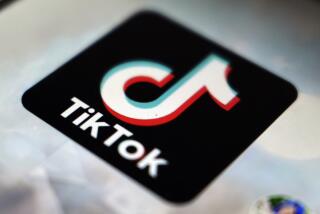Universal EMI deal heats up in Europe
- Share via
The climate is heating up for Universal Music Group in Brussels as the company shuttles its proposal to buy EMI’s recorded music business through Europe’s labyrinthine antitrust approval process.
The pending $1.9-billion acquisition, announced in November, would solidify Universal’s ranking as the world’s largest music company and reduce the number of major labels from four to three.
To satisfy the European Commission’s concern that the union would create a Leviathan with undue market power, Universal Music is expected on Thursday to submit a list of assets it is prepared to sell in order to dilute its presence in several key European countries, according to executives knowledgeable with the commission’s review.
Universal, a division of Vivendi, in a statement this week said, “We are continuing to work constructively with the European Commission over our proposed acquisition of EMI Recorded Music, and we remain confident of clearance.”
Universal has long said it expects to sell parts of EMI in order to clear regulatory hurdles, including portions of Virgin Records along with an assortment of regional European labels.
Lucian Grainge, Universal’s chief executive, in an interview with the Financial Times said that he was “open-minded” about working with regulators to sell assets.
More than two dozen companies, mostly independent music companies and some private equity firms, have raised their hands as potential buyers of whatever Universal decides to sell, said a person close to the company.
Among the interested parties are Richard Branson, chairman of Virgin Group. Branson’s company confirmed his interest in re-acquiring the European operations of Virgin Records. Branson founded Virgin Records in 1972 and sold the label to EMI in 1992.
Branson’s business partner in the potential bid for Virgin Records is Patrick Zelnik, president of French music lable Naive Records. In an opinion piece published Monday in the Financial Times. Zelnik spoke in favor of the Universal purchase of EMI.
Zelnik’s opinion diverged with two European organizations representing independent labels, including Impala and Merlin Network -- both of which issued statements opposing the merger.
“The best outcome for consumers is for the merger to be blocked,” said Charles Caldas, president of Merlin, which represents 16,000 independent music labels. “If the merger goes through, we think it will result in fewer choices and higher prices. Universal has plenty enough market power as it is. They should not have more.”
In the U.S., the Federal Trade Commission is reviewing the deal for potential antitrust issues. The FTC has not stated whether it will oppose the merger.
“We will continue to work closely with the independent music community so that, together, we can help ensure the future health of our industry,” Universal said in a statement.
ALSO:
EMI Group sold as two separate pieces to Universal, Sony
Sony completes EMI purchase, creates world’s largest music publisher
More to Read
Sign up for The Envelope
Get exclusive awards season news, in-depth interviews and columnist Glenn Whipp’s must-read analysis straight to your inbox.
You may occasionally receive promotional content from the Los Angeles Times.







